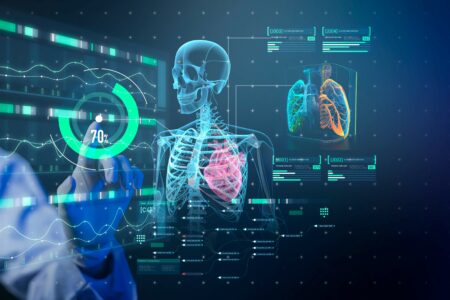Andrew Mackenzie
Associate Director of Strategy & External Relations, The Physiological Society
This week the UK Government announced a new Health Data Research Service, backed by a £600 million investment in collaboration with the Wellcome Trust. As part of the announcement, the Government and partners set out an ambitious agenda: to accelerate medical research by providing streamlined, secure access to national-scale NHS data and reduce the time taken to set up clinical trials to just 150 days by 2026.
This is not just a technical infrastructure project – it signals a broader intent to remove barriers to innovation. Efforts to reduce duplication and streamline trial approvals are essential to make the UK a world-leading hub for health research. The hope is that this will improve the efficiency of research, and ultimately deliver faster, more effective care to patients.
This new initiative raises important questions: How will this infrastructure support not just more research, but better research? How do we ensure that innovations based on this data are safe, effective, and grounded in robust scientific understanding?
This is where The Physiological Society’s recent policy reports offer timely insight, in particular 2023’s From ‘Black Box’ to Trusted Healthcare Tools and 2025’s Physiology Passport: Putting personalised prevention at the heart of resilient health system.
In From ‘Black Box’ to Trusted Healthcare Tools, we explore how physiology – the science of how the body functions – must play a central role in the development of AI technologies in healthcare. The report warns that many AI tools currently in use or in development are being built with limited physiological input, increasing the risk of unsafe, ineffective, or even harmful technologies. When algorithms are trained on vast datasets without the lens of physiological plausibility – the extent to which their predictions align with what we know about human biology – the result can be a dangerous “black box” effect: outputs that are opaque, uninterpretable, or misleading.
We argue for the establishment of a ‘Physiology & AI Framework’ to set clear guardrails for the development and deployment of AI in healthcare. This would help ensure that models are interpretable, evidence-based, and designed with real-world use in mind. Our proposals include embedding physiological expertise in regulatory processes, grant review panels, and cross-disciplinary training programmes, making physiology a central component in the ecosystem of AI-driven innovation.
The new Health Data Research Service, while not explicitly focused on AI, creates the enabling conditions for AI to flourish by making data more accessible, more interoperable, and better integrated across the system. If paired with the kind of physiological insight we have advocated, this could lead to the development of truly transformational tools: AI that not only identifies patterns in data, but does so in ways that reflect the realities of human health and disease.
This alignment extends into our other key report from earlier this year, Physiology Passport: Putting personalised prevention at the heart of resilient health system. This calls for a reimagining of the NHS as a system focused not only on treating illness but on preventing it. The report highlights the importance of early intervention, personalised care, and a shift towards maintaining good health rather than simply reacting to poor health. These ambitions resonate strongly with the Government’s stated ambitions in the upcoming 10-year health plan (expected this summer). In it we expect to see initiatives aimed at increasing healthy life expectancy and reducing the burden of long-term conditions through innovation and improved healthcare delivery.
The Government’s Health Data Research Service announcement is an exciting development in the infrastructure and systems needed to accelerate research and improve access to data. It naturally complements the scientific and translational objectives The Physiological Society has identified in our recent reports.
Physiological insight provides an essential blueprint for how research can be shaped to be biologically meaningful, clinically relevant, and ethically robust, enhancing the opportunities presented by the faster, more integrated research unlocked by the Health Data Research Service. Together, these approaches can provide a mutually reinforcing foundation for delivering health innovations that are both efficient, effective and safe.
The new Health Data Research Service has the potential to support trusted, transparent access to data. As part of this, maintaining public trust and confidence is essential, particularly when it comes to the sensitive issue of using patient data for research. Public trust in digital health technologies can be fragile. As The Physiological Society highlights in our reports, making it clear that developments are being shaped with input from physiologists, clinicians, data scientists, and ethicists will help build the confidence needed to support impact.
Looking ahead, the creation of this new Health Data Research Service presents a unique moment for alignment. It brings together government ambition, infrastructure investment, and a clear appetite for change. And as we build this faster pipeline for research, we should seize the opportunity to incorporate insights from physiology – through tools such as the Physiology Passport and an Physiology & AI Framework – to maximise the opportunity to shift to a new, more preventative way of delivering healthcare.
To truly ‘turbocharge’ medical research, we must not only speed up the process, we must also strengthen the foundations. That means embracing our call for physiological plausibility, embedding it into the way we collect, access, and use health data. It means training the next generation of scientists and innovators to work across disciplines, with a shared understanding of how the human body functions. And it means designing tools and technologies that are not just clever, but clinically meaningful.
In doing so, we can ensure that this ambitious government initiative is the start of a new era in health research: one that is fast, fair, and firmly rooted in the science of life itself.

